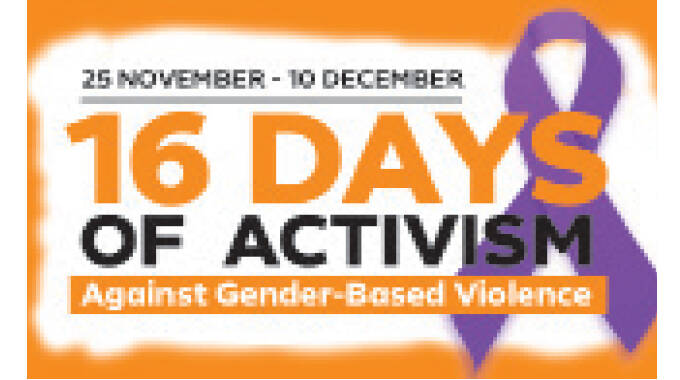The Chronicle

Lumbidzani Dima, Chronicle Reporter
IT all starts during the dating phase! The red flags will be there, but ignorance, love and dependence on a perpetrator overshadow them.
Young women silently suffer the bashings and try by all means to cover the blue eye with makeup all in the name of “he will change” and “what will people say.”
Official estimates indicate that nearly 40 percent of Zimbabwean women have experienced either physical or sexual violence at some point in their lifetime. It has also been reported that one in three of these women experienced physical or sexual violence before reaching the age of 18.
The 16 Days of Activism Against Gender-Based Violence (GBV) is an annual campaign that started in 1991, running from November 25 to December 10 every year.
This year’s national theme is “All lives matter: End gender-based violence now!”
For the past three decades, campaigns have been done but GBV prevalence remains high globally.
In an interview, the Programme Manager for Family Support Trust Mrs Mercy Majachani said in their encounters with GBV survivors they have realised that in most cases, violence does not emerge when people are already married.
It starts when people are still dating and worsens in marriage.
She said perpetrators of intimate partner violence usually give unjustified excuses to abuse their partners yet the problem would be themselves and not the situations.
Mrs Majachani said women, however, remain in those abusive relationships because of financial and sexual dependence and societal pressures whereby the elderly women will say “emtshadweni kuyabekezelwa” (marriage needs patience).
“We have come across very educated working women remaining in violent relationships simply because society expects them to be in a marriage. Lay counsellors, communities and relatives do not condemn violence and insist on partners remaining in a relationship no matter what,” said Ms Majachani.
 16 Days of Activism Against Gender-Based Violence
16 Days of Activism Against Gender-Based ViolenceShe said as long as there is no unity to fight GBV, it will always prevail.
“Addressing violence against women requires the unity of different stakeholders if it is to end. It requires the involvement of the perpetrators in the first place. Perpetrators of violence need to understand that violence does not solve problems.
“The majority of perpetrators of violence are men and they, therefore, have to be brought on board. There is therefore a need to engage and involve men in fighting gender-based violence. When one has been abused, no one service provider can provide all services required by a survivor.
“There is a need for health practitioners to provide medical services, social workers, psychologists and counsellors to provide psychosocial support, the police and the courts to ensure that justice is done. Communities, community leaders, church leaders all play a role in fighting GBV. Traditional leaders have the power and urgency to prevent GBV in their communities,” she said.
Zimbabwe Women Lawyers Association (ZWLA) Southern region co-ordinator, Ms Sethulo Ncube said GBV does not necessarily start when couples are already married but in some instances it does.

Ms Ncube said as they deal with abused women, they gather that some stay in abusive relationships because they already have children; “seng’hlalele abantwana.” She said the “Mrs Title” has value in traditional culture and if the marriage fails society blames women.
“Women tend to ignore red flags such as lack of respect, being frequently rebuked, financial violence all because they think the situation won’t be serious. Eventually, the physical violence emerges and that is when there is a realisation that the situation is serious and might end up badly and deadly,” she said.
South Western Region Gender Network Programmes Assistant, Ms Dionne Sibanda said some men tend to be all good during the courtship stage but once it turns into marriage they dominate and their true colours start to be visible.
She said the huge contributor of GBV is economic, whereby women tend to stay in relationships or marriages because of the financial support they get from their partners and also other social reasons such as considering what or how society will view them after a breakup.

“For some, it’s because of the families and children but mainly it is for the financial dependency they have on the abuser. For some it’s also a lack of empowerment, they are not empowered enough to stand on their own besides the abuser,” said Ms Sibanda.
She, however, said even though women and girls are the main victims of GBV, it should not be ignored that men also fall victim.
Article Source: The Chronicle
